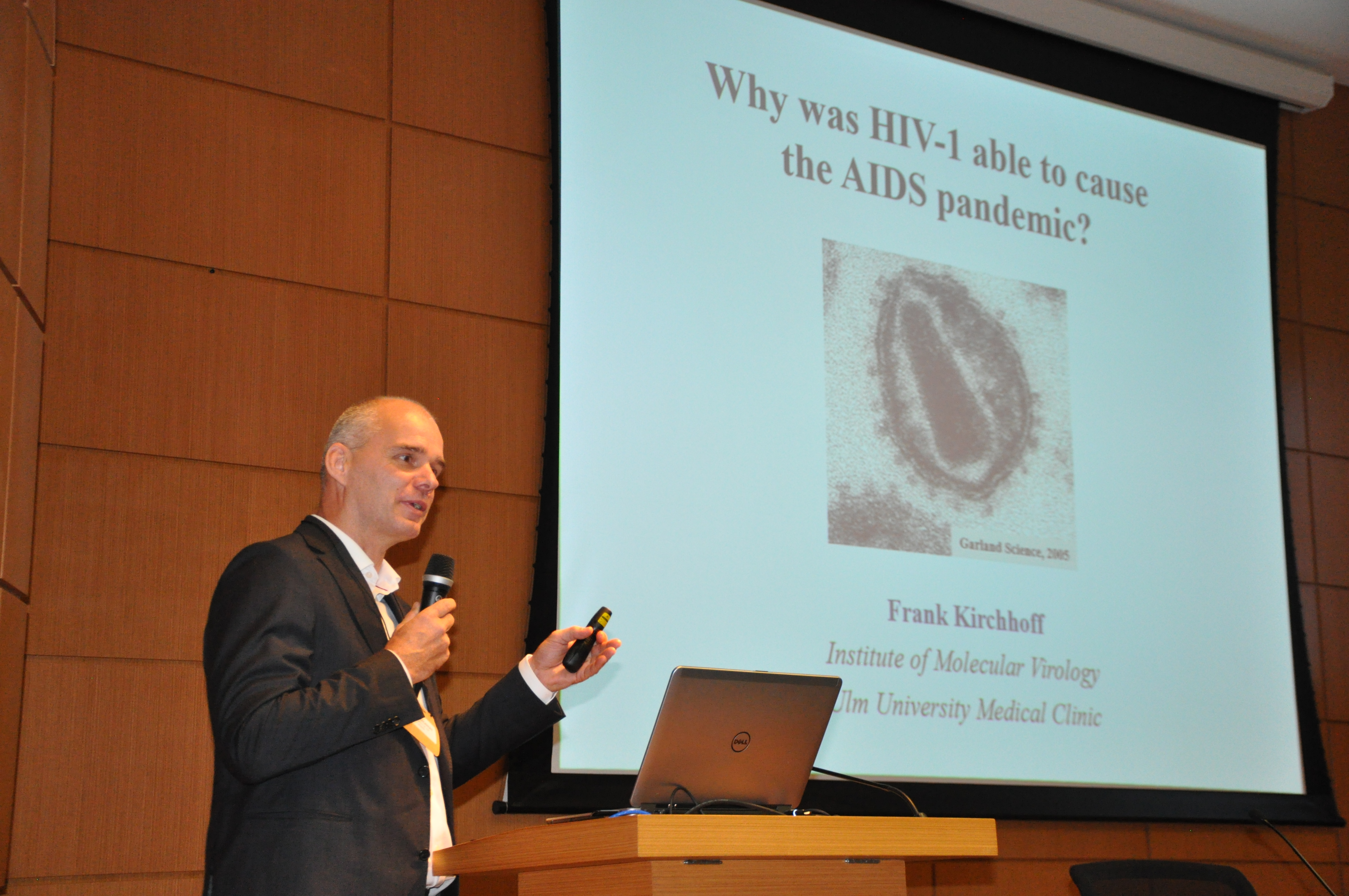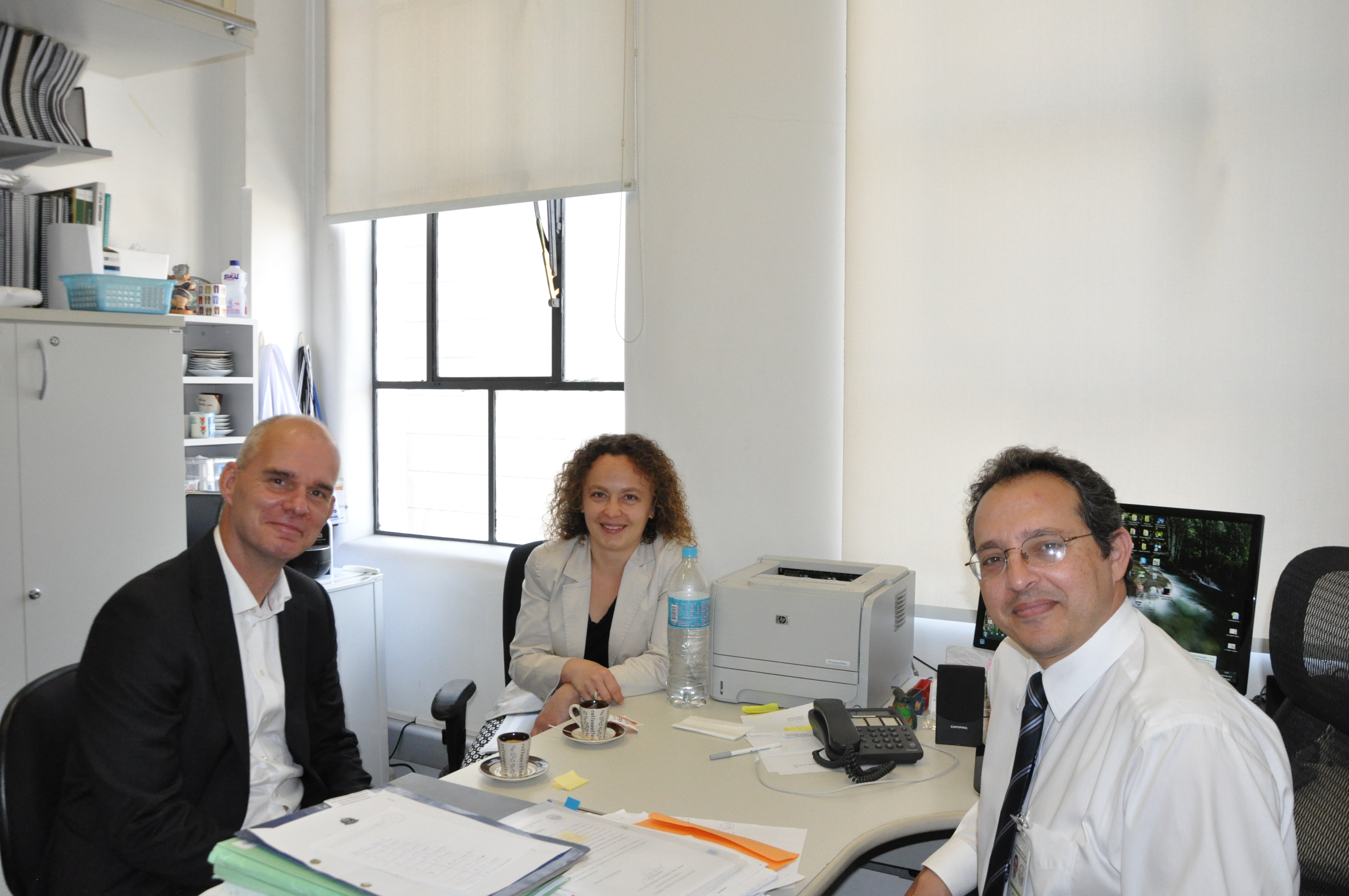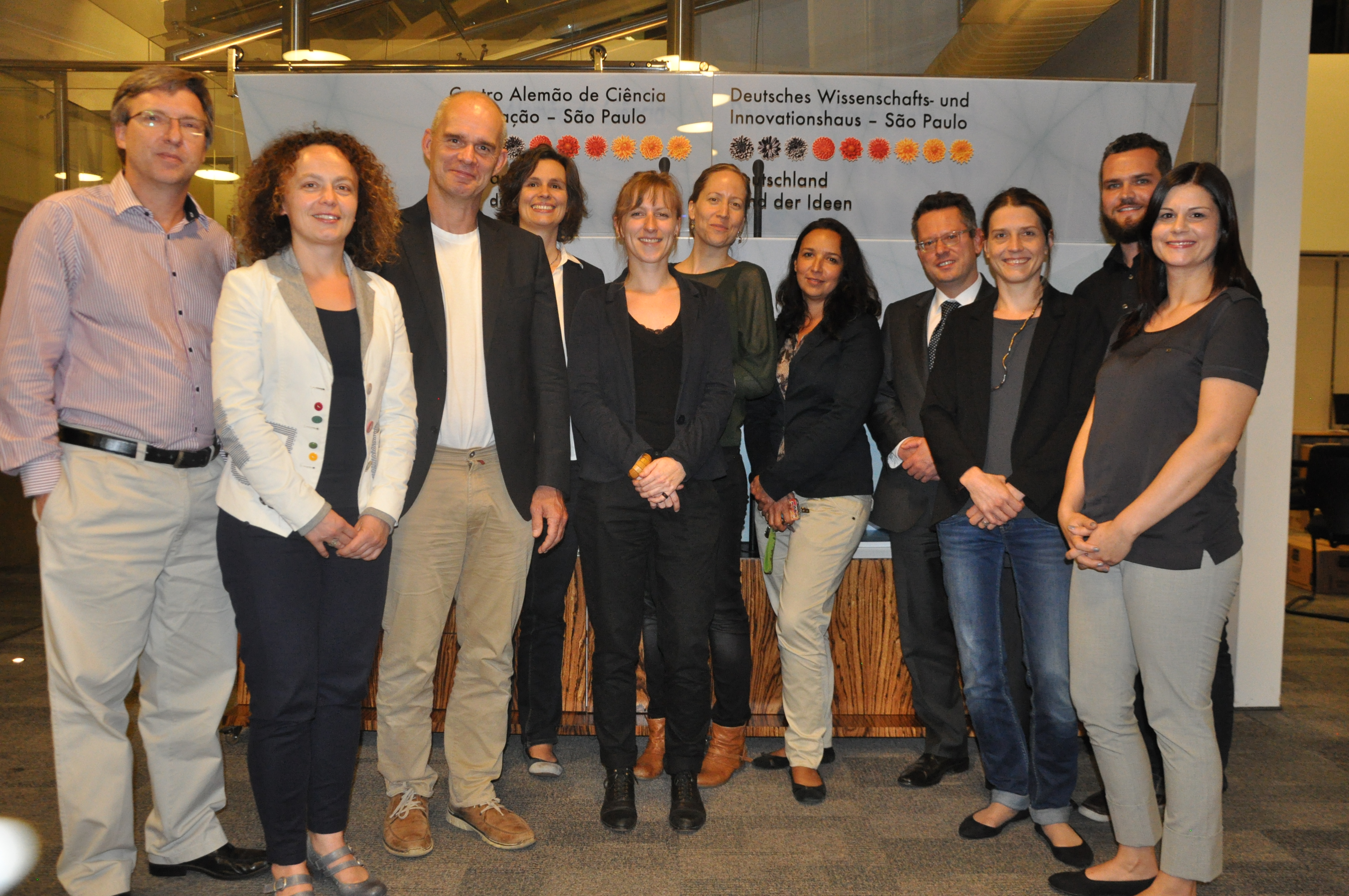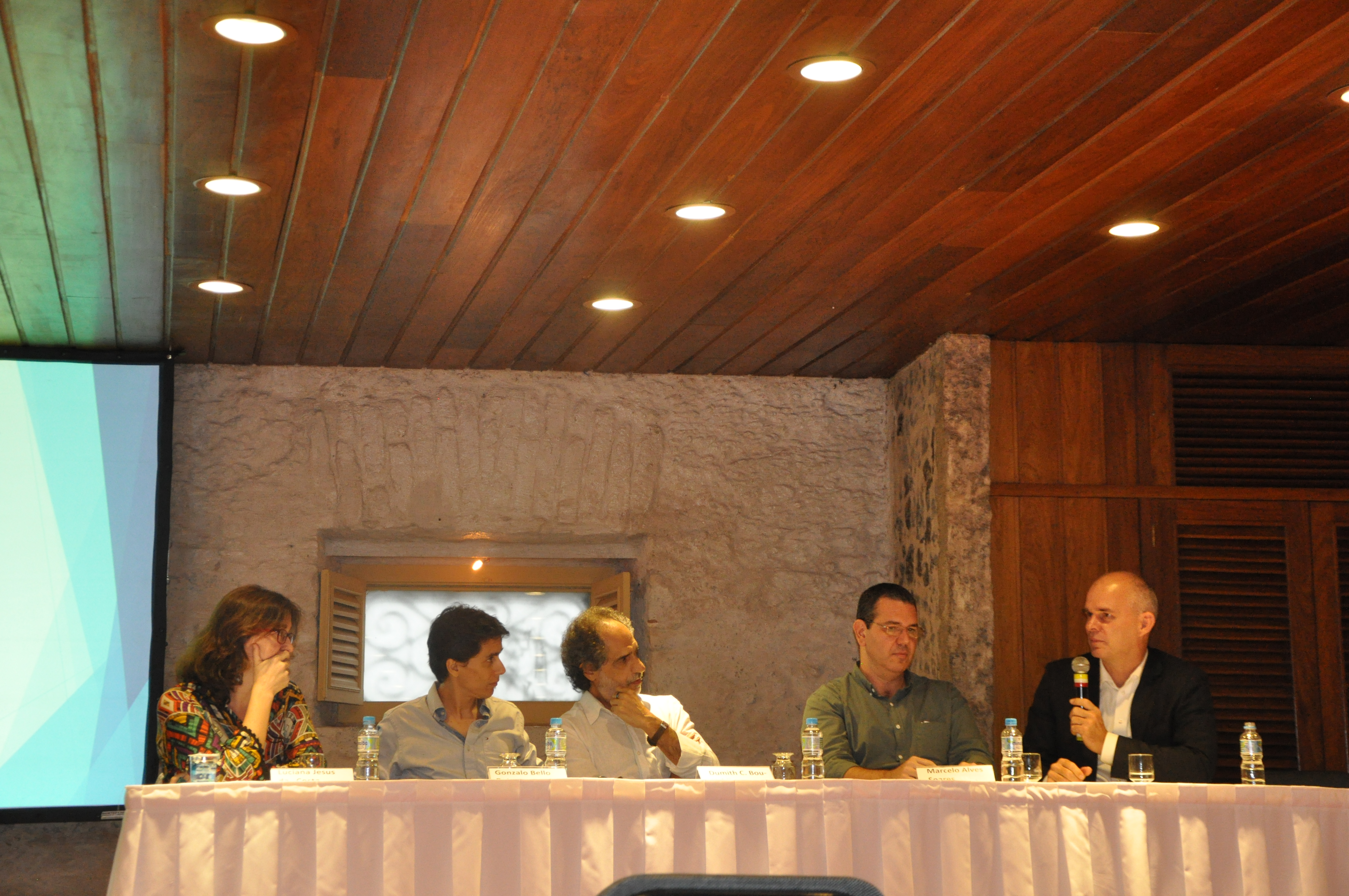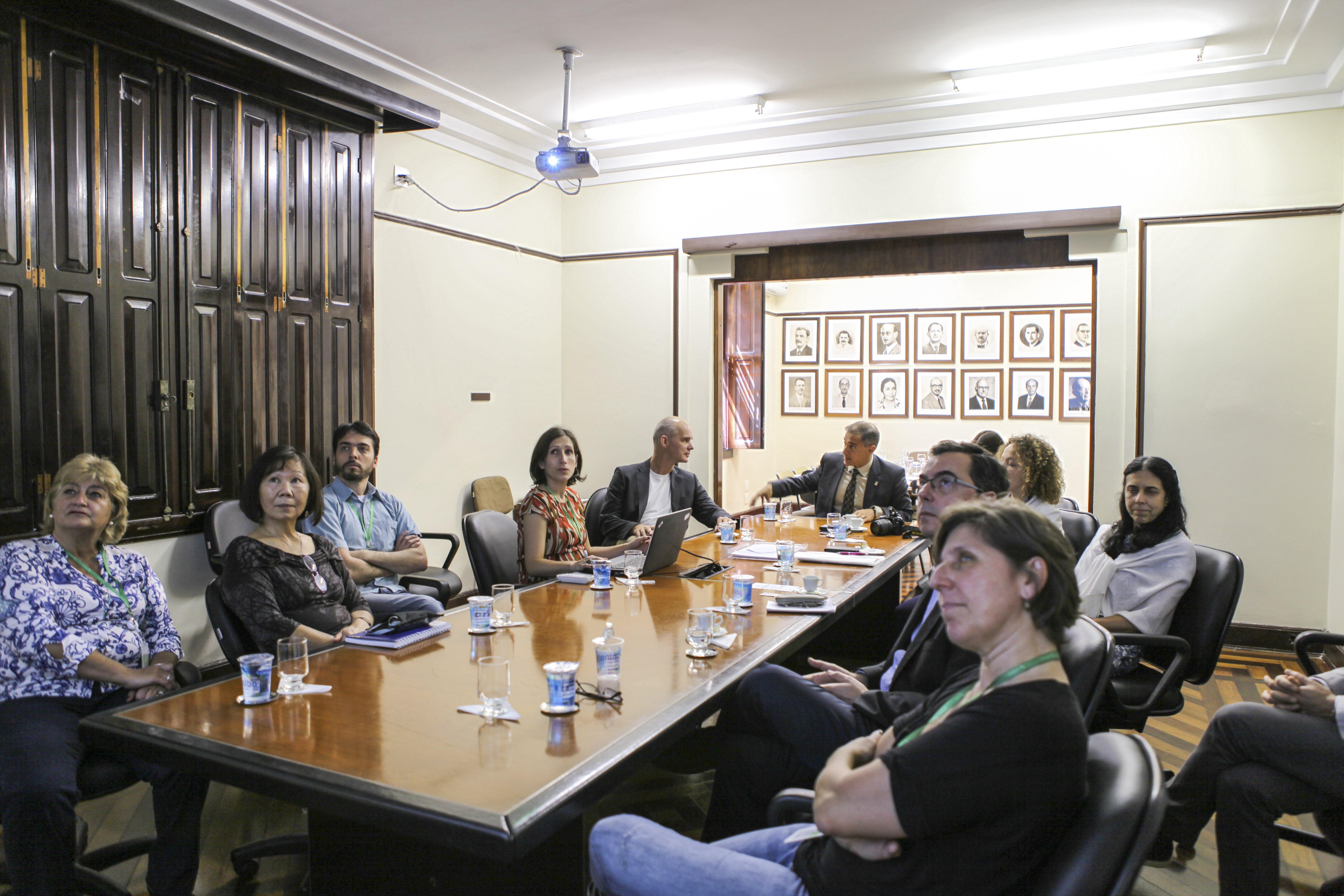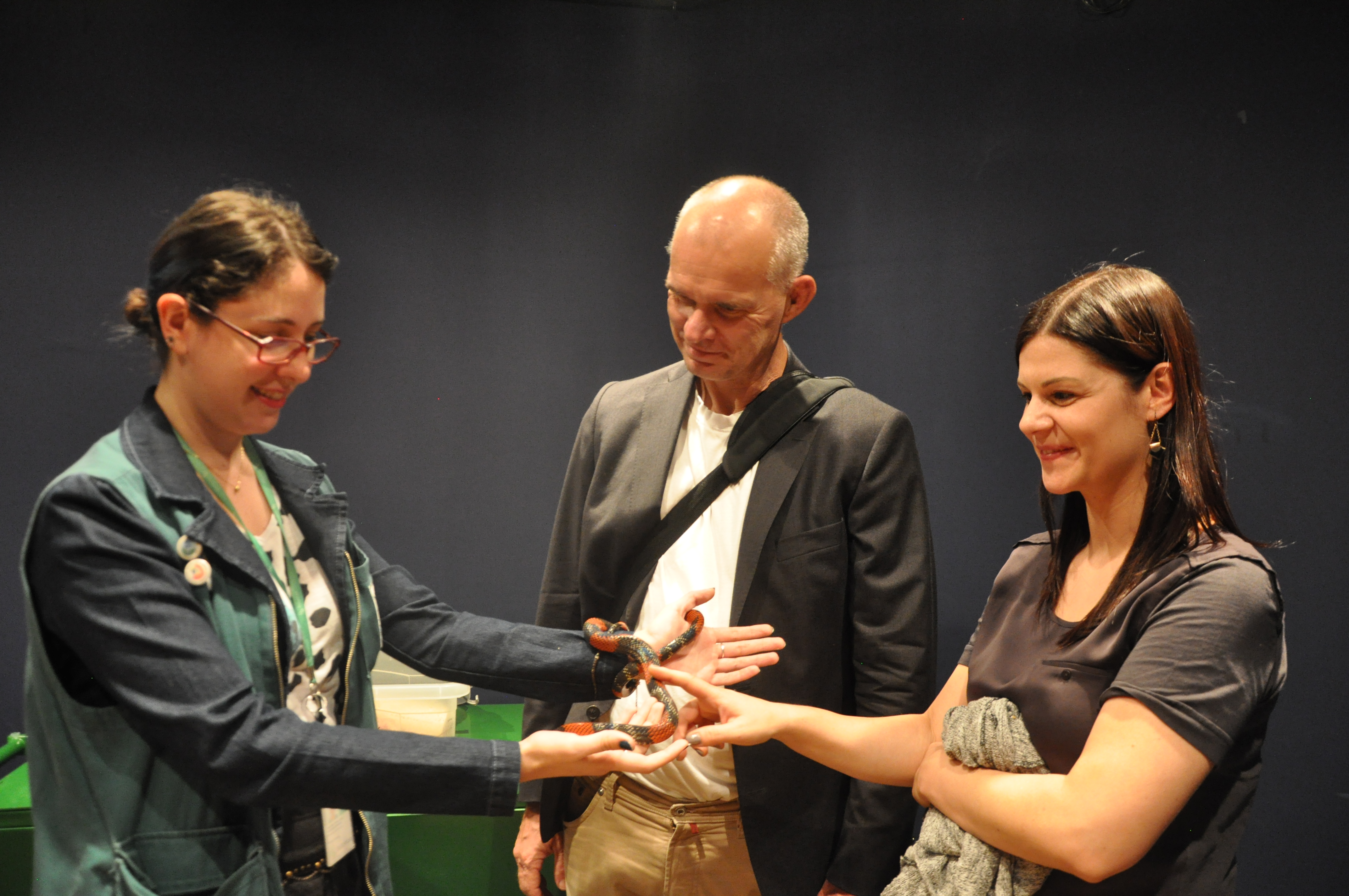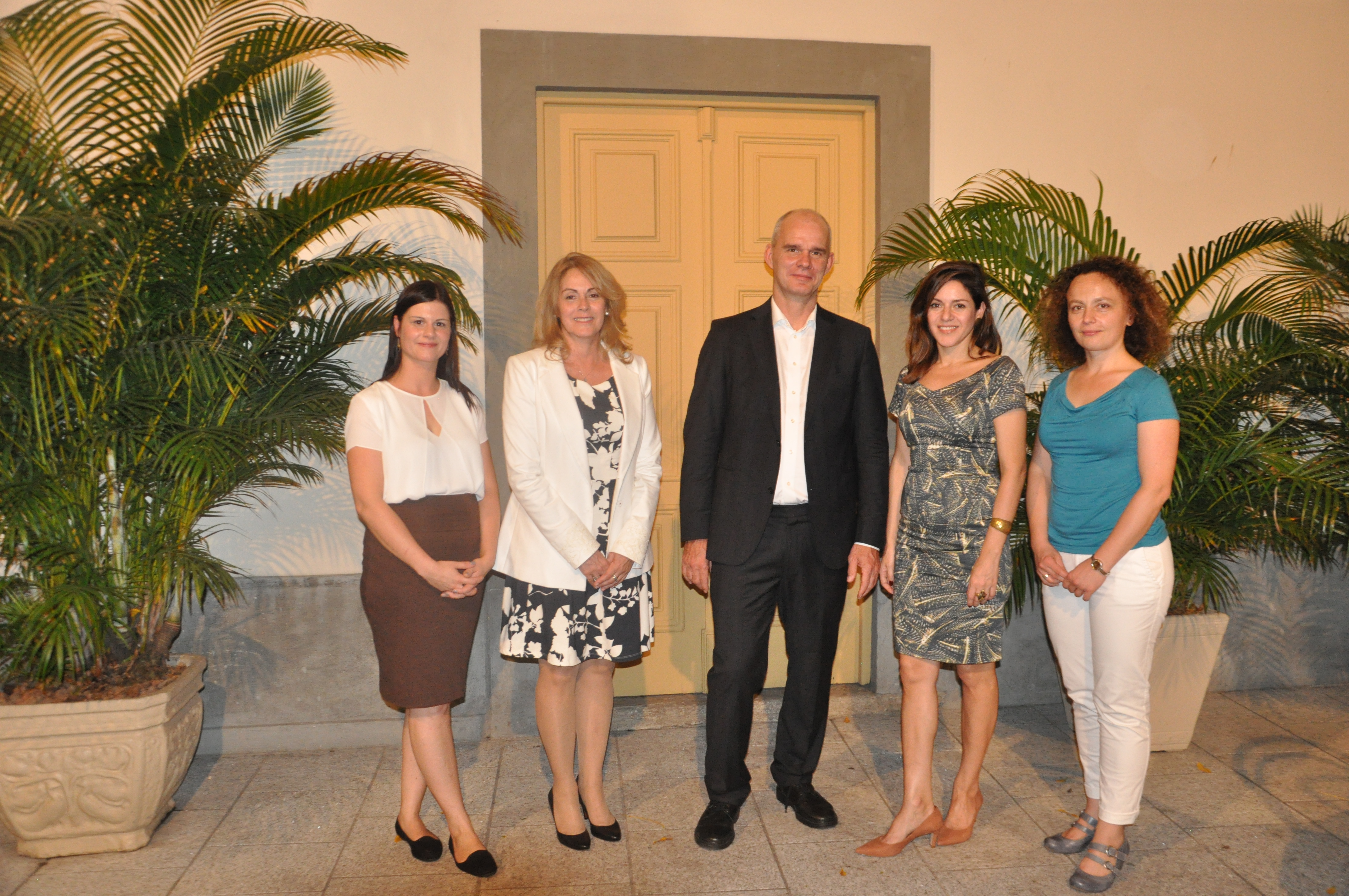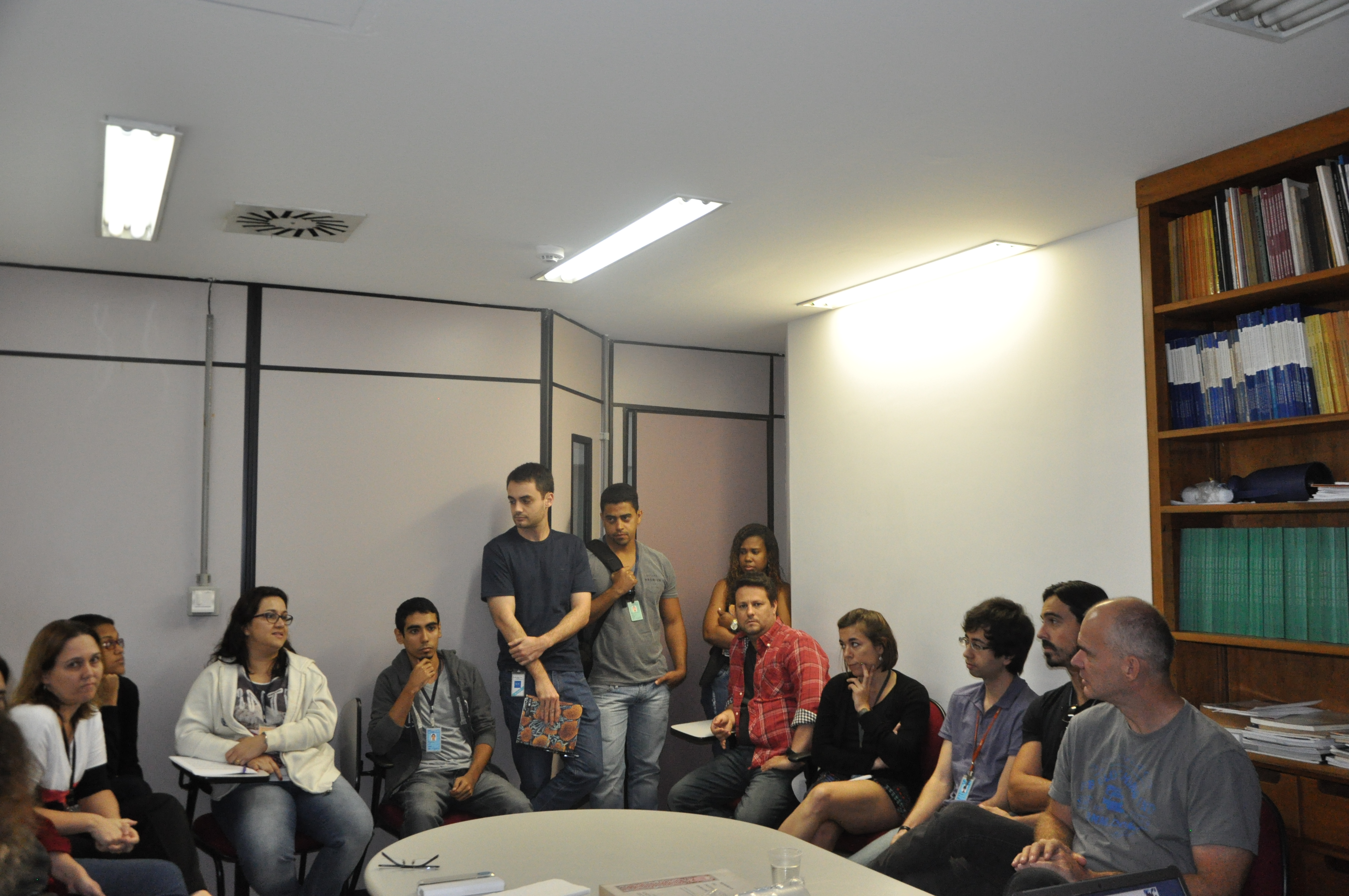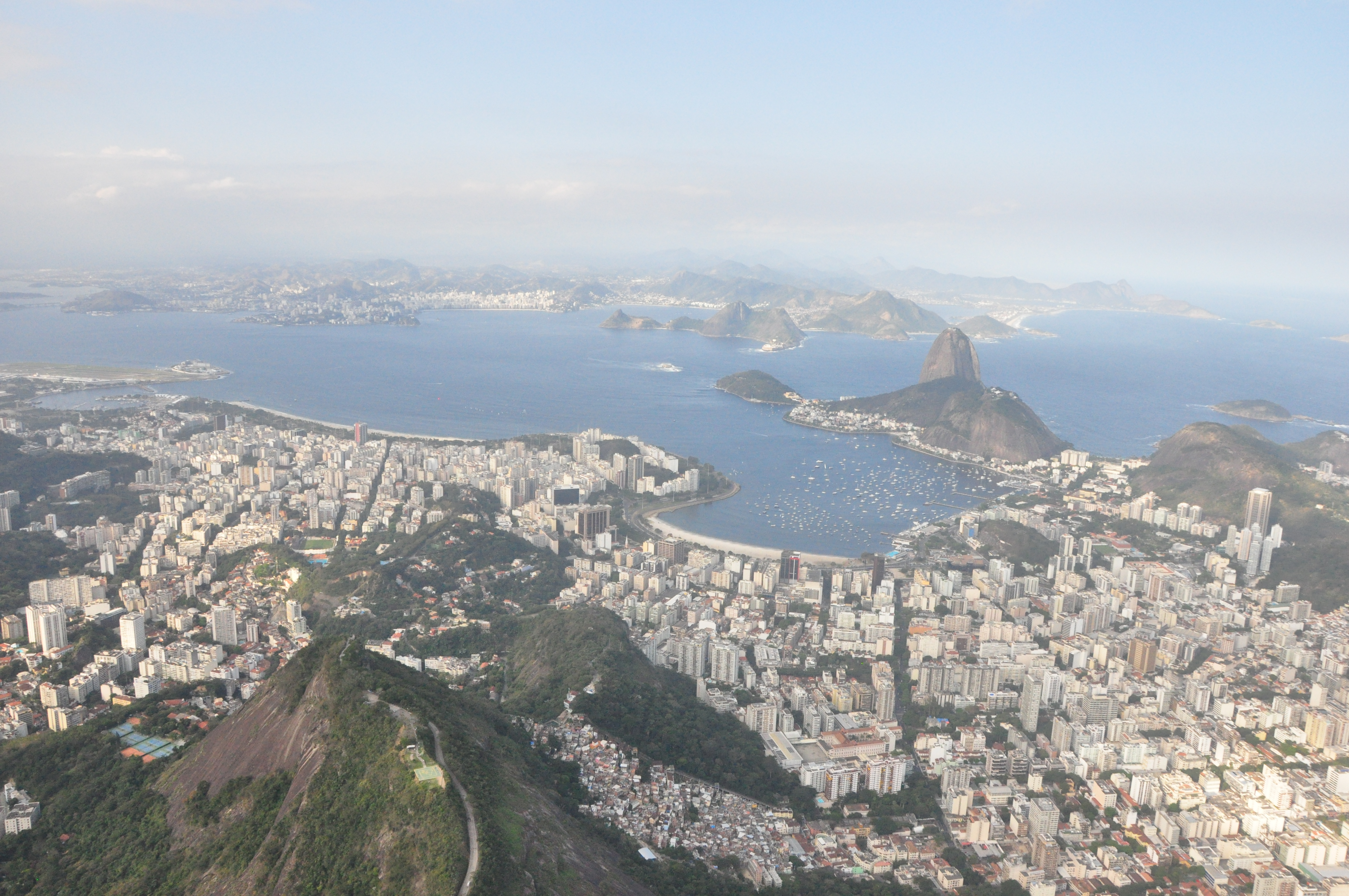Leibniz Lecture by Immunologist Frank Kirchhoff in Brazil
Prof. Frank Kirchhoff during the Leibniz Lecture at FAPESP in São Paulo
(11.09.15) The DFG Office Latin America has organised its third lecture series in Brazil, within the framework of which a recipient of the Leibniz Prize visited several locations, researchers and institutions to promote dialogue between Germany and Brazil. On the agenda for Professor Frank Kirchhoff, one of the HIV researchers at Ulm University Medical Center, on his visit to Brazil between 15 and 22 August 2015 were intensive discussions with researchers and research funding organisations in addition to delivering the obligatory Leibniz Lecture. The 2009 recipient of the Gottfried Wilhelm Leibniz Prize gave a lecture entitled “Why Was HIV-1 Able to Cause the AIDS Pandemic?”, in which he discussed new findings in virology in São Paulo and Rio de Janeiro. Frank Kirchhoff's core research area focuses on the Nef protein of the immunodeficiency viruses, which helps to better understand the pathogenesis of HIV/AIDS. His investigations into HIV transmission also open up new ways to improve AIDS prevention – a topic that is of great interest to researchers in this field and the general public alike.
The event in São Paulo began with words of welcome from former FAPESP President Professor Celso Lafer, Deputy Consul Uwe Heye, Director of the DFG Office Latin America Dr Kathrin Winkler and the FAPESP Scientific Director Professor Carlos Henrique de Brito Cruz. This emphasised the importance of the event and the collaboration between the FAPESP and the DFG. After the talk, Professor Kirchhoff was interviewed by FAPESP. The interview is available to view her.
Kirchhoff also had the opportunity to visit several institutes, i.e. the Heart Institute (InCor), the Faculty of Medicine and the Institute of Tropical Medicine, both at the University of São Paulo. Here he also met Professor Kallás, with whom he had an intensive discussion on current lines of research and the latest results. Kirchhoff shared Professor Kallás' opinion with regard to the specific strengths of Brazilian research when it comes to exploring infectious diseases, e.g. dengue fever, and in terms of the strong genetic mix of the Brazilian population, which provides an interesting parameter for scientific studies.
Professor Kirchhoff appeared to be very impressed by Instituto Butantan, the biomedical research centre in São Paulo. During his lengthy visit here, the different research areas made a very positive impression and he praised the good combination of basic research, development, production and public relations work in translational infectiology in particular, calling it first class.
Professor Kirchhoff then visited the German House of Science and Innovation in São Paulo and was able to get to know the staff working in the member organisations during a talk and gain a deeper insight into German-Brazilian collaborations between individual partner organisations and universities.
On Wednesday, he moved on to Rio de Janeiro, a place well known for being strong in infection research. The recipient of the Leibniz Prize once again gave the widely understandable lecture, which was introduced by words of welcome from delegates of the funding organisations FAPERJ and DFG, Leila Pontes and Dr Winkler, as well as by the city's Consul General. After the lecture on Kirchhoff's research, there was a lively panel discussion between the researchers Professor Bello Betancor (FIOCRUZ), Professor Soares (INCA), Professor Bou-Habib (FIOCRUZ) and Professor Jesus da Costa, with questions and comments from the audience. During this discussion, fundamental issues of AIDS research and the possible cure to AIDS were just two of the aspects examined.
A particular highlight for the German researcher were the events that unfolded on Thursday and Friday. Kirchhoff had been invited to the Federal University of Rio de Janeiro (UFRJ) to give a talk to an interested audience of experts on the topic of “Relevance Beyond HIV/AIDS: Endogenous Inhibitors and Enhancers of HIV-1 Infection”. This talk also discussed the role of the body's individual HIV-related peptides in cancer research and treatment. In the afternoon, early career researchers presented their research projects and took the opportunity to exchange scientific knowledge with Kirchhoff, who appeared to be impressed by the featured projects and their scientific and verbal presentation.
Like the visit to Instituto Butantan in São Paulo, the visit to the Brazilian National Institute of Health (FIOCRUZ) was fascinating. In talks, it became clear that despite differing core research areas, there is interesting potential for interaction and an explicit interest in collaborations with Germany. In the afternoon, Kirchhoff visited various laboratories at the National Cancer Institute (INCA), which he found remarkable. There were also some interfaces and a fundamental interest in collaboration here.
In response to the question of his view of the strengths of Brazilian research conducted in the field of HIV research and/or virology, Kirchhoff said:
“Particularly in clinical terms, I see major potential for collaboration and I believe that there is a substantial need for funding opportunities for bilateral collaboration here. I think the unique feature of Brazilian research is the availability of a large number of samples from infected patients, which are of major interest for further studies. Obtainable, rare pathogens or emerging pathogens are another advantage that Brazilian researchers have here. On the basis of my insights, I think the specific additional benefit of a collaboration for the German side lies in being able to access interesting sample material. The additional benefit for the Brazilian side is the availability of a wide range of techniques for the molecular characterisation of pathogens.”
About the Leibniz Lecture
The DFG intends to use the Leibniz Lectures to create opportunities for scientific exchange and dialogue between the recipients of the most important German research funding award – the Gottfried Wilhelm Leibniz Prize – and researchers around the world as well as interested members of the public. The trip taken to give the Leibniz Lecture is also used to initiate and establish international collaborations.
